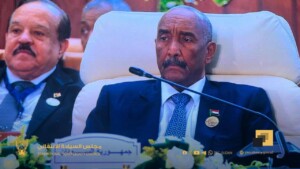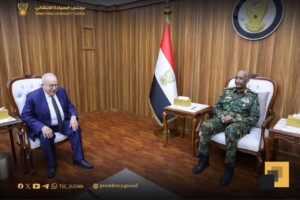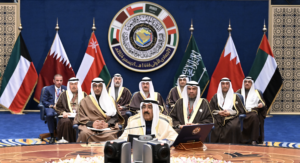Minawi: Sudan Constitutional Declaration ‘ignores Addis Ababa agreement’
The Addis Ababa agreement between the Forces of Freedom and Change (FFC) – which was ‘ignored and not included’ in the Constitutional Declaration – addresses issues of stopping the wars in the country, peace, as well as issues of marginalisation, citizenship, and equality, says Minni Minawi, head of the Sudan Liberation Movement and chairman of the Sudan Revolutionary Front (SRF).
 Minni Minawi, head of the Sudan Liberation Movement and chairman of the Sudan Revolutionary Front (File photo: Unamid)
Minni Minawi, head of the Sudan Liberation Movement and chairman of the Sudan Revolutionary Front (File photo: Unamid)
The Addis Ababa agreement between the Forces of Freedom and Change (FFC) – which was ‘ignored and not included’ in the Constitutional Declaration – addresses issues of stopping the wars in the country, peace, as well as issues of marginalisation, citizenship, and equality, says Minni Minawi, head of the Sudan Liberation Movement and chairman of the Sudan Revolutionary Front (SRF).
In an interview with Radio Dabanga on Tuesday, he said that the Addis Ababa agreement includes the need to reach a comprehensive peace agreement that includes all armed movements and not only the SRF were not included in the Constitutional Declaration.
“Unfortunately the FFC have reneged on this and signed without including them in the Constitutional Declaration,” which he described as a power-sharing agreement between the military junta and the FFC.
On the ongoing steps to address the situation, Minawi said that the SRF is pressing hard on the FFC to include the Addis Ababa document in the Constitutional Declaration before the final signing on August 17, considering that peace should be given priority.
‘The SRF will remain in the FFC coalition and the Sudan Call alliance, even if the Addis Ababa agreement is not included in the Constitutional Declaration’ – Minni Minawi
The SRF will remain in the FFC coalition and the Sudan Call alliance, even if the Addis Ababa agreement is not included in the Constitutional Declaration, the rebel leader said.
He stressed that as armed struggle forces will not return to war unless attacked, or the next government returns to the same war budget set by the former government.
‘Armed struggle forces will not return to war unless attacked’
Asked what measures the SRF will take if its demands contained in the Addis Ababa agreement were not included in the constitutional document before the final signing scheduled for August 17, Minawi said the SRF would then turn to a peaceful mass struggle through protests and “organise marches of millions for change”.
“The armed movements will not let those forces win the upcoming elections but will work to raise awareness among the marginalised people in the country.”
He called on all marginalised people to form their own political organisations to advance their issues “instead of those elite organisations that do not give them or their issues the lowest consideration when talking about a civilian-led government”.
National Umma Party
In Khartoum, leaders of the National Umma Party (NUP) called for a revision of the agreements between the FFC and the Transitional Military Council (TMC) and postponing the formation of the government for a month from the date of the appointment of the prime minister, in order to absorb the demands of the armed movements.

NUP Co-President Maryam El Sadig, Assistant to the President of the party, Salaheldin El Haj and Political Bureau member Mohamed Adeela, all of whom participated in the Addis Ababa meeting with the SRF, called in a joint statement carrying their signatures for the need to honour what was agreed upon in Addis Ababa and threatened to resign if their demands were ignored.
The statement stressed the need for the SRF leadership to have an opportunity to take part in consultations on the formation of the government and the selection of ministers, as agreed with them in the Ethiopian capital.
The statement also called for a review of the implementation matrix the TMC and the FFC agreed on, so that the formation of the government takes place one month following the appointment of the prime minister, who is appointed simultaneously with the appointment of the Sovereign Council in the manner agreed upon in Addis Ababa.
Our editorial independence means that we can continue to provide factual updates about political developments to Sudanese and international actors, educate people about how to avoid outbreaks of infectious diseases, and provide a window to the world for those in all corners of Sudan. Support Radio Dabanga for as little as €2.50, the equivalent of a cup of coffee.












 and then
and then